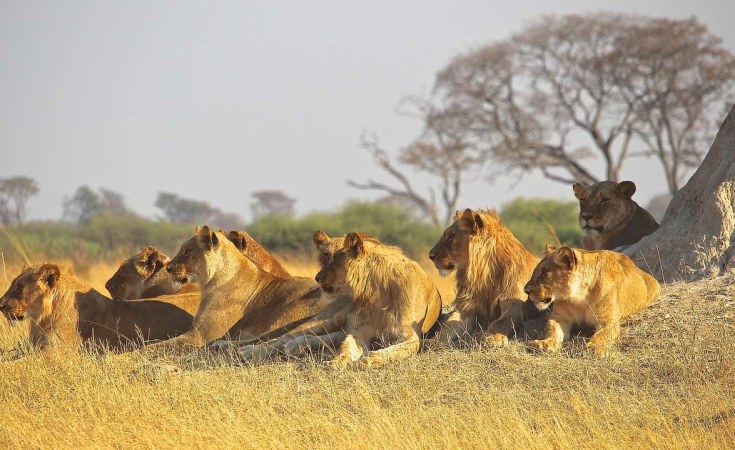Namibia - Namibia's unique desert-adapted lions, which eke out a living in the harsh Kunene Region in the country's north-west, have declined up to 21 percent over the past year due to a drought-induced drop in prey and conflict with humans.
A survey carried out in late 2022 to early 2023 by Namibia's Ministry of Environment, Forestry and Tourism (MEFT) put numbers of desert-adapted lions at around 57-60 adults and 14 cubs.
Since then, another eight to 12 lions have died - some through conflict with humans, according to the latest statistics.
This puts their current annual mortality rate at 10-21 percent.
"If this was extrapolated out to a few years, [mortalities] would be considered unsustainable," says John Heydinger, researcher and co-founder of Lion Rangers, a conservation group that helped with the population survey.
He cautions, however, that the population is not "in freefall". Historically, numbers have been lower.
The human-lion conflict appears to be driven by declines in typical lion prey caused by drought.
According to figures from a separate 2022 count, numbers of gemsbok, a long-horned antelope, were found to have fallen by an estimated 85 percent in the last five years; and zebra and springbok by 59 and 53 percent respectively.
Killing livestock
On the back of game shortages, lions have been doing what they have done throughout time: hunting livestock.
From 2021-2023, they killed 512 animals including goats, sheep, cattle, donkeys and even chickens and dogs, according to data gathered by the Lion Rangers.
These represent significant losses to pastoralists from the 19,800-strong Otjiherero and Damara-speaking communities who share the landscape with the desert lions.
Under Namibian law, wild animals - including protected species - can be killed without legal repercussions if they pose an immediate threat to human safety or property.
But not all conflict is between lions and pastoralists. An eight-year-old male lion known to researchers as OPL-3, who had not killed any domestic animals, died last April after a group of miners put out a poisoned goat for him to feed on.
"There are times when lions are killed when they haven't done anything," says Heydinger, whose organisation trains and equips community members and livestock owners to monitor lions and limit human-lion conflict.
Population fluctuations are not unusual for Kunene's desert lions. As few as 20 were recorded in the late 1990s.
But then a decade or so of exceptionally good rains boosted wildlife numbers, and the lion population rose to around 100 or more.
The latest MEFT survey is believed to be the most systematic to date. It involved field teams tracking lions, photographing individuals and analysing unique whisker spots on a lion's muzzle to avoid double-counting.
New cubs recorded
Rainfall in some areas of Kunene Region this year could lead to a prey rebound and a slight uptick in lion numbers. At least 32 cubs have been recorded that weren't captured by the 2022 survey, says Heydinger.
While encouraging for the lions' overall population stability, this surplus of youngsters may soon bring its own complications.
Young lions recently dispersed from prides who can't effectively hunt for themselves, or mother lions and their prides who need to feed their cubs, might be more likely to turn to easy prey, such as livestock.
Heydinger points out, however, that there have been people with livestock in north-western Namibia since at least 900 CE.
"All indications are that there have been lions there the entire time so, in some ways, this is a sustainable system," he says.
"If we can bridge the landscape requirements of lions with the livelihood and wellbeing of people, I think the desert-adapted lions have a good chance."


